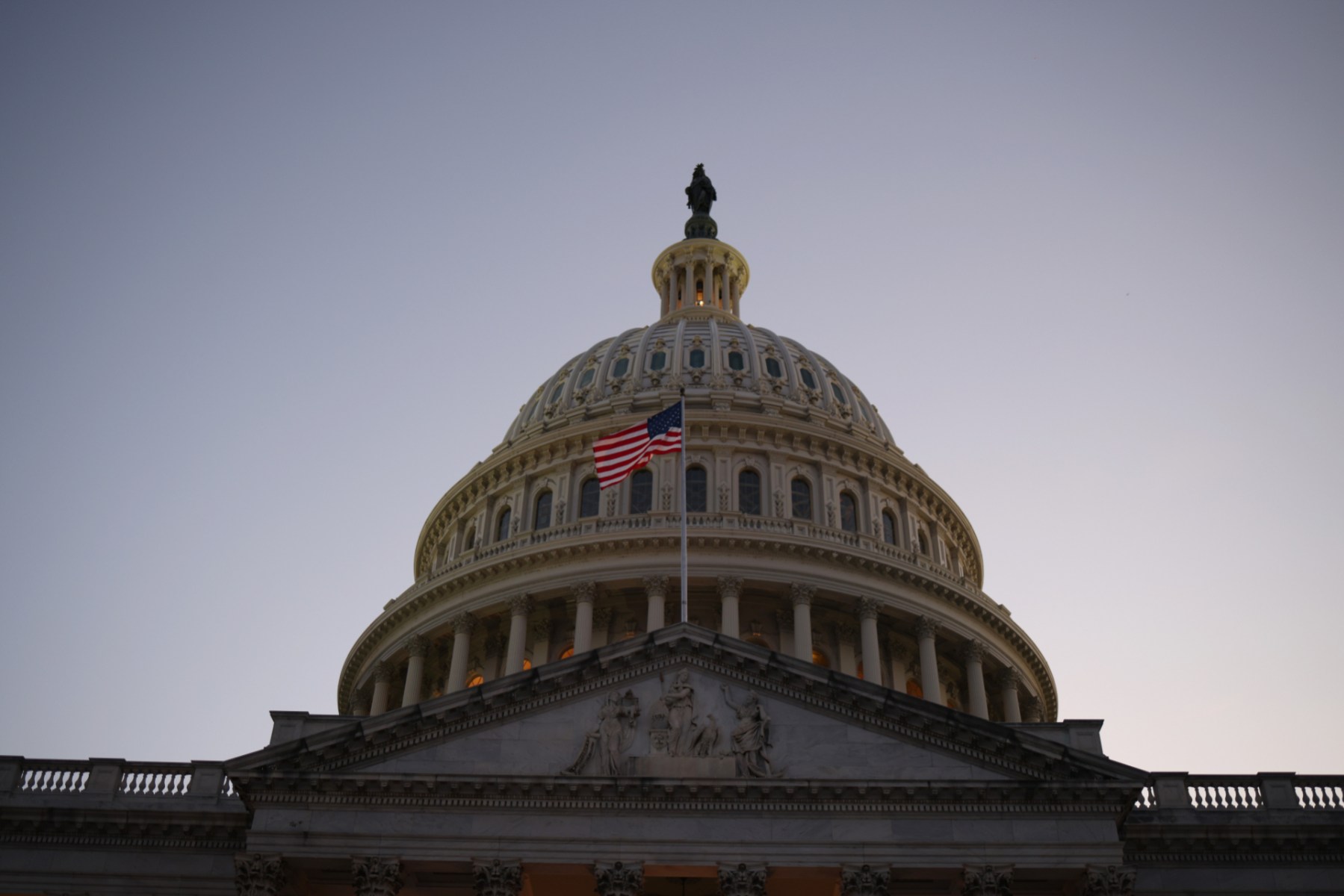Your trusted source for contextualizing the news. Sign up for our daily newsletter.
After the Supreme Court’s decision in Dobbs v. Jackson Women’s Health Organization landed last year, ending the federal right to an abortion, the Biden administration issued new rules to assist service members and military dependents who had to travel across state lines for abortion services. However, House members voted 221-213 Thursday night to pass an amendment eliminating these abortion provisions from the 2024 National Defense Authorization Act (NDAA), the annual defense spending bill. It was part of a hotly contested debate over the bill, which ultimately passed Friday along partisan lines, 219 to 210.
The amendment, introduced by Republican Rep. Ronny Jackson of Texas, prohibits the Defense Department from paying or reimbursing expenses related to abortion services. Jackson argued that the Biden administration’s move to pay for service members’ out-of-state travel expenses related to abortion care was a violation of federal law that restricts the department from funding abortions.
“I absolutely will not waver in my defense of the rule of law, therefore ensuring that taxpayer money is not used to kill innocent babies,” Jackson said on the House floor on Thursday. “And in doing so, also ensure that our military service members can focus on the jobs that they have in front of them and their families, instead of being used for the political gain of the Biden administration.”
Without these abortion provisions, tens of thousands of active-duty service members would likely be impacted. Nearly half of all women currently serving in America’s active duty military have restricted access to abortion care based on the state in which they are stationed, according to a study conducted by the RAND Corporation.
Several Democratic women spoke in opposition to the amendment, including Rep. Mikie Sherrill of New Jersey, a Democrat and veteran on the Armed Services Committee. Sherrill said that when she was an officer in the Navy, she learned that good leaders protect their squadron, and that included safeguarding women’s health care.
“This would enact a dangerous health care travel ban,” Sherrill said on the House floor. “Service members signed up to put their lives on the line for our freedoms, our national values, our constitutional rights. They did not sign up to put their lives on the line or their spouses’ lives on the line because they cannot get access to basic care.”
-
More from The 19th
- House Republicans are baking abortion restrictions into spending bills — and avoiding public votes
- A relocated show and an overturned law reveal the ways restrictions on drag vary across the country
- ‘The government owns your body’: What abortion access now looks like for the military
Rep. Chrissy Houlahan of Pennsylvania, a Democrat and veteran, said she was “saddened and frustrated” that Congress was making these kinds of medical decisions altogether. Houlahan asked the legislators present why any woman would want to enlist if her fundamental freedoms were no longer her own.
“Let me say loud and clear as someone who has worn the uniform, had a child as an active-duty member and has a uterus — unlike many who are opining on this subject — that I trust women to make the best decisions that they are able to for their own health and their family’s health,” Houlahan said. “It is insulting that we have to stand here and ask our colleagues to acknowledge our servicemen and women’s and our family members’ bodily autonomy.”
The House passed several heavily contested amendments on Thursday, including one that prohibits the Defense Department from funding transition surgeries and hormone treatments for transgender people and another that prohibits gender transition procedures through a military program dedicated to family members with special needs. The House version of the 2024 NDAA — which will authorize more than $886 billion for national security — is also banning critical race theory, ending diversity, equity and inclusion initiatives, preventing climate change programming and prohibiting drag shows, according to the Republican-led House Armed Services Committee.
In a news conference on Friday morning, Houlahan and Sherrill said that they do not expect the bill to pass — as currently written with Jackson’s amendment — in the Senate.
“If the House is a boiling teapot, the Senate is like the saucer where things cool off,” Houlahan told reporters. “Hopefully, cooler heads will prevail. I would be stunned if this [amendment] remained.”
Sherrill said they will continue to work with the Defense Department to make sure that no matter what state service members and their families are stationed, they will not be at the mercy of their commanding officers’ personal beliefs or the expensive costs of airfare when it comes to accessing care.
“I don’t think in good conscience that we could vote this through because of the damage it would do to those we serve,” Sherrill said on Friday.
Kyleanne Hunter, a senior political scientist with RAND Corporation and a Marine Corps combat veteran, said that the issue of abortion access is particularly pressing as it might impact military’s current recruitment crisis.
“We’re at a point where the services are struggling to meet their recruiting numbers and goals,” Hunter said. “And through other work that we’ve done and anecdotally, we’ve found that family planning is a large driver as to why people leave.”
Service members generally don’t have a choice in where they are stationed, and many of the largest bases in the country are in states with abortion bans or extreme restrictions. And the removal of these abortion provisions not only impact service members, but their spouses and their dependents, Hunter added.
“It impacts people who are connected to the military right now, but it has the potential to impact young women who are thinking about joining the military,” Hunter said. “You’ve just layered on to other issues: Women in the military already experience increased risk for sexual assault and sexual harassment, and now are getting more restricted access to the full suite of reproductive health care. We’re not sure what kind of impact that might have down the road.”






